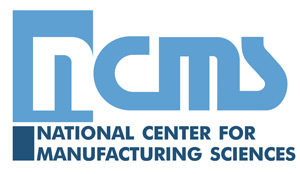Expeditionary Fluid Analysis Capability (EFAC) – Phase II
NCMS Project #: 140803
Problem: Multiple studies of fluid analysis programs within the Department of Defense (DoD) have determined that over 80% of the recovered oil still met or exceeded manufacturers specifications after it was recovered during equipment oil changes. Additionally, fluid technology has advanced to the point wherein units can take advantage of low cost, deployable, highly effective fluid analysis devices to make better use of limited maintenance funds without compromising readiness and equipment availability.
Benefit:
- Enhance and modernize the joint oil analysis program.
- Rapidly deliver fluid assessment results to maintenance personnel.
- Provide a mechanism to virtually connect oil analysis laboratories with the maintenance community at the POM.
- Refine laboratory operations and analysis.
- Improve maintenance execution.
- Improve the condition, reliability, and readiness of the weapon systems employed by the military services.
For public sector fleet and equipment managers, a fluid analysis device that quickly determines the condition of vehicle or equipment oils and lubricants can reduce the costs associated with fluid analysis and maintenance programs requiring timely sample collection and analysis. Additionally, fewer oil changes means a reduction in the storage, transport, and disposal of waste oil benefiting the environment and reducing related costs. Remotely located entities benefit by having a reliable, easy-to-use, in-house capability that provides real-time fluid analysis with minimal operating time lost eliminating the need (and costs) for a mobile laboratory or collecting and shipping samples for analysis.
Solution/Approach: The Expeditionary Fluid Analysis Capability (EFAC) will provide participants with a portable fluid testing and diagnostic tool that provides maintenance personnel with real-time assessments of equipment fluid conditions. The portable device bridges the gap between future online analysis systems and current laboratory-based analysis paradigms while facilitating a more effective fluid analysis protocol that can significantly impact fluid-related requisition and disposal costs.
This initiative incorporates and builds upon the findings and recommendations of previous important CTMA initiatives:
- The Expeditionary Fluid Analysis Capability, Joint Specification Development and Benefit Analysis.
- The Alternative Fuel/Energy Conversion of USMC Ground (Non-Tactical) Vehicles.
- The efforts of the Expeditionary Fluid Assessment Support Team that developed and identified the specifications and requirement for expeditionary fluid analysis.
Impact on Warfighter:
- Reducing maintenance down time
- Increasing operational availability
- Reducing the logistics footprint (materiel, waste, disposal)
- Reducing overall sustainment costs
DOD Participation:
- Department of Defense, Joint Staff J-4
- Expeditionary Fluid Assessment Support Team
Industry Participation:
- Spectro Inc.
- Troika Solutions LLC
- NCMS
Benefit Area(s):
- Cost savings
- Repair turn-around time
- Maintenance avoidance and reliability
- Improved readiness
Focus Area:
- CBM+
